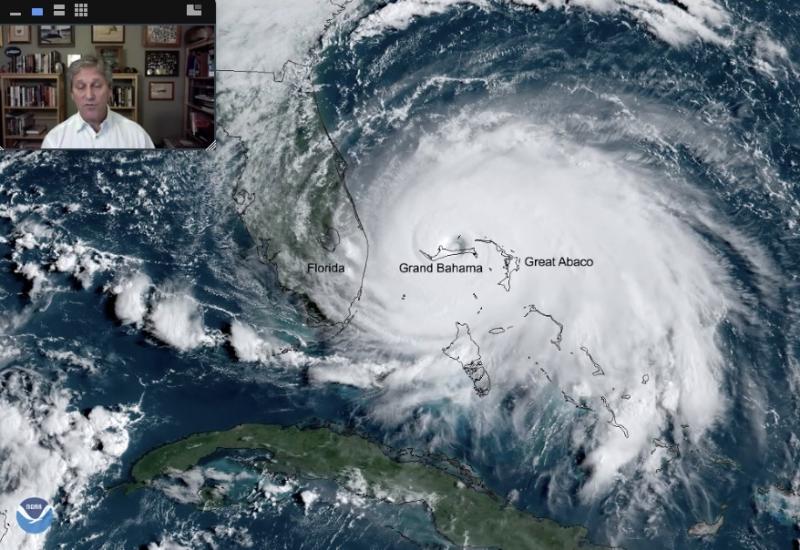An ‘eye’ on hurricane history with author Eric Dolin
MARION — From Hamilton to Hemingway, hurricanes have had an impact on American history for centuries.
And in a Sippican Historical Society virtual lecture, Author Eric Dolin ran through the impact, both physical and cultural, that hurricanes have had on the country.
Dolin’s book, “A Furious Sky: The Five Hundred Year History of America's Hurricanes,” is a 2020 New York Times editor’s choice. And as he put it, the book is “more than a litany of death and destruction.”
Dolin said the history of hurricanes in the U.S. goes a lot further than the physical impact of natural disasters.
For example, Benjamin Franklin was the first person to discover that a hurricane has forward momentum, and that its winds can gust opposite the storm’s direction of movement.
“Hurricanes are an inevitable and painful part of the American experience,” Dolin said.
There’s experiences like when a young Alexander Hamilton described the destruction a strong hurricane caused on his home island of St. Croix. The essay he wrote detailing the devastation the storm caused his hometown moved local merchants to raise money to send him to New York City, where he attended Kings College. And the rest is history. Literally.
Then there’s the time when Ernest Hemingway was among the first responders to a hurricane that hit the Florida Keys, where World War I veterans were building a highway.
Even American women’s movements can be viewed through the ‘eye’ of the storms.
For decades, women’s movements fought to stop having their names attached to the death and destruction of hurricanes. Dolin said that it was exceedingly popular in much of the 20th century to portray storms as women in political cartoons. He said the cartoons tended to portray women in “horrific” light.
Some in the women’s movement even called for the storms to be renamed as ‘him’icanes.
And after enough pressure from the movements, naming conventions for hurricanes were changed. Now, the storms are named after women and men on an alternating basis.
But in a hurricane season like 2020’s, even that naming convention has gone out the window.
Dolin said that this year, hurricanes have moved past the male and female naming lists and into the greek alphabet. The only other time that happened was in 2006.
Dolin said that the storms, categorized by their low air pressure and extremely high winds, are widely believed to become stronger and more frequent due to climate change.
He said that in a normal season, lasting from June 1 to Nov. 30, there’s a 6% chance of a hurricane hitting Massachusetts’ shores. This year, that chance was estimated to be around 10%.
But, as Dolin put it, “hurricanes are not equal opportunity offenders.”
He said Florida was at the receiving end of 40% of all hurricanes which have hit U.S. shores.
“Furious Sky” can be found at the Sippican Historical Society, which is featuring an exhibit based on the book open on Thursdays and Saturdays.











